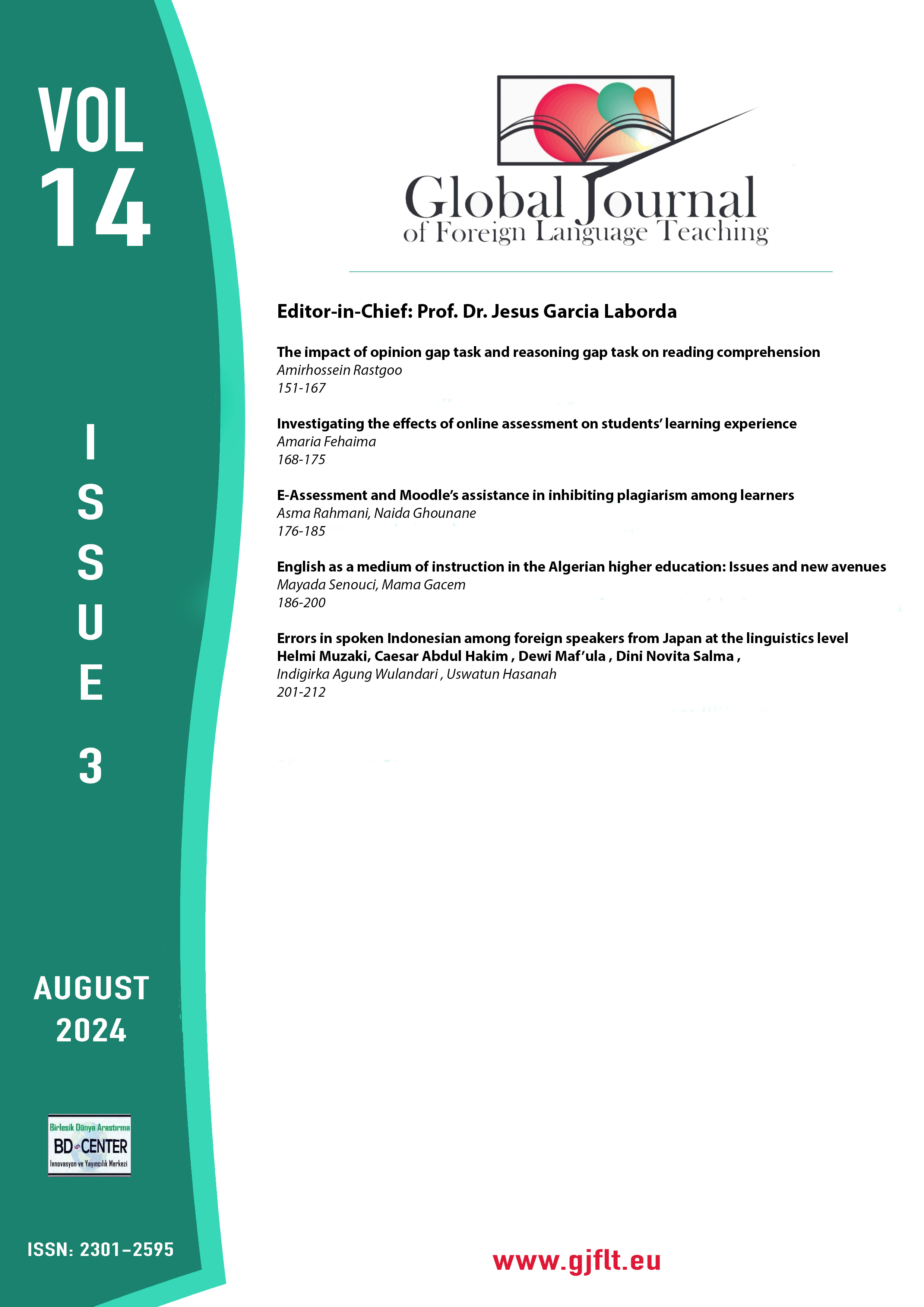English as a medium of instruction in the Algerian higher education: Issues and new avenues
Main Article Content
Abstract
It is widely approved that whatever may be the drive for acquiring or learning a new language, it remains an asset. The instruction of a foreign language is resourceful for any nation as it enhances the linguistic capital among its people. In Algeria, following the discourse of languages at universities, a linguistic shift has been introduced from French as a Medium of Instruction to English as a Medium of Instruction. Nevertheless, this language reform is not free from the impact of some factors such as: political and social since language planning cannot be detached from its social and historical context. Using a mixed-method approach, this research paper attempts to examine teachers’ perceptions and expectations about the effectiveness of the integration of English. Sixty students from various faculties and levels responded to a questionnaire by the researchers. The results show that, despite their enthusiastic and supportive views toward the new language project, the respondents affirm that Saida and the Algerian university as a whole are not prepared for this sudden shift. Hence, a myriad of recommendations arises for both teachers and policy-makers in enhancing the acquisition planning for the successful implementation of EMI in higher education.
Keywords: Acquisition planning; EMI; higher education; linguistic capital
Downloads
Article Details

This work is licensed under a Creative Commons Attribution-NonCommercial-NoDerivatives 4.0 International License.
Authors who publish with this journal agree to the following terms:- Authors retain copyright and grant the journal right of first publication with the work simultaneously licensed under a Creative Commons Attribution License that allows others to share the work with an acknowledgement of the work's authorship and initial publication in this journal.
- Authors are able to enter into separate, additional contractual arrangements for the non-exclusive distribution of the journal's published version of the work (e.g., post it to an institutional repository or publish it in a book), with an acknowledgement of its initial publication in this journal.
- Authors are permitted and encouraged to post their work online (e.g., in institutional repositories or on their website) prior to and during the submission process, as it can lead to productive exchanges, as well as earlier and greater citation of published work (SeeThe Effect of Open Access).
